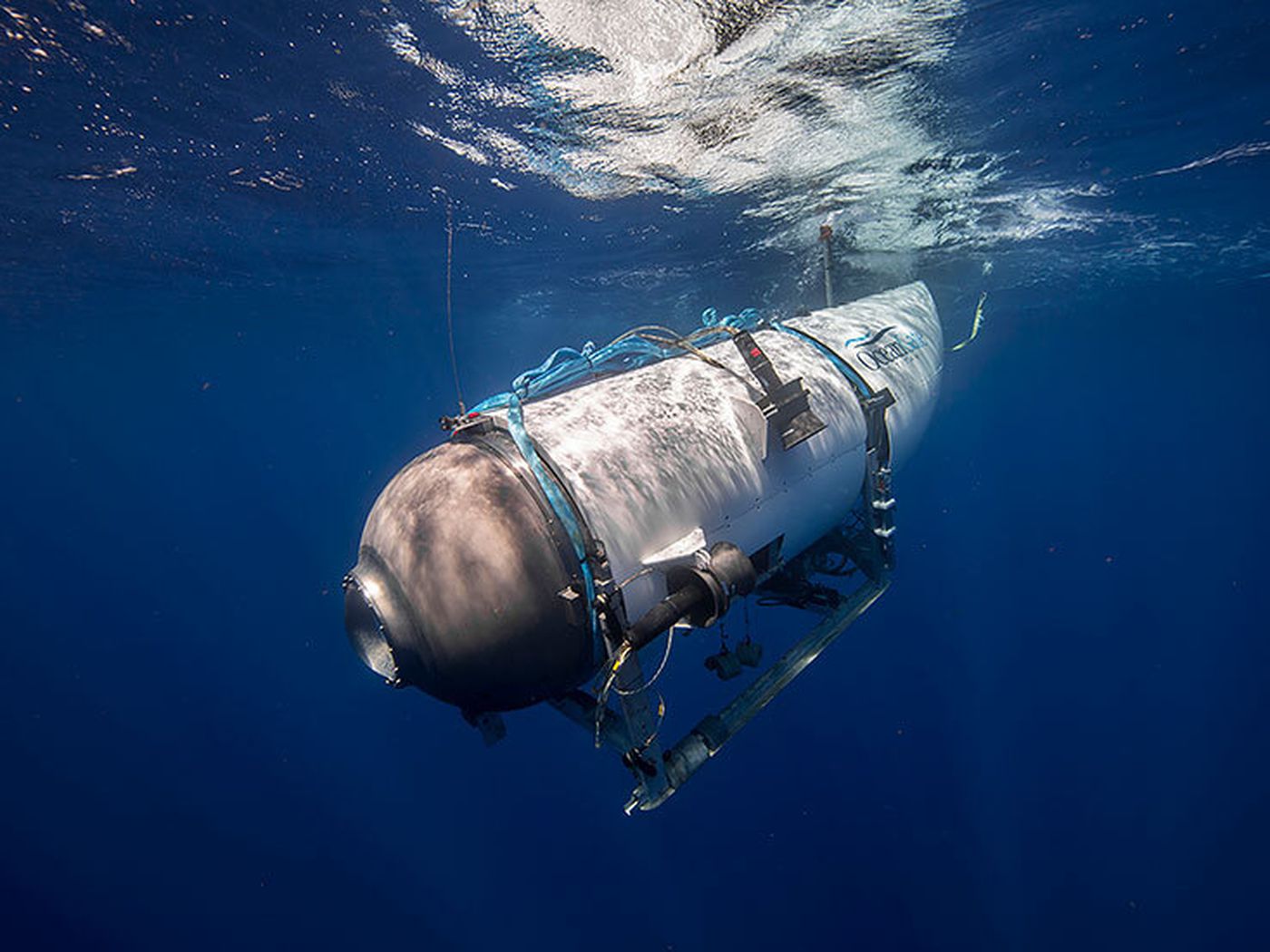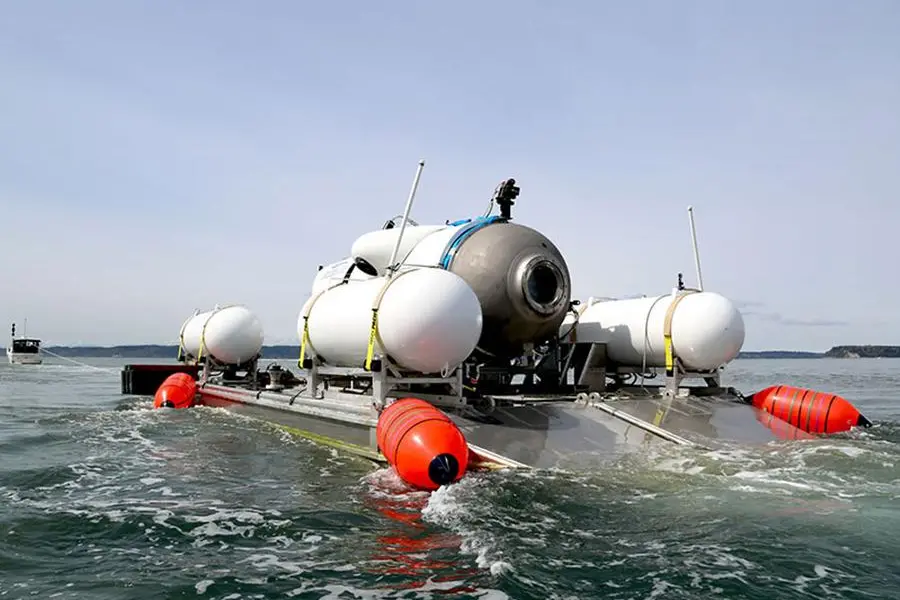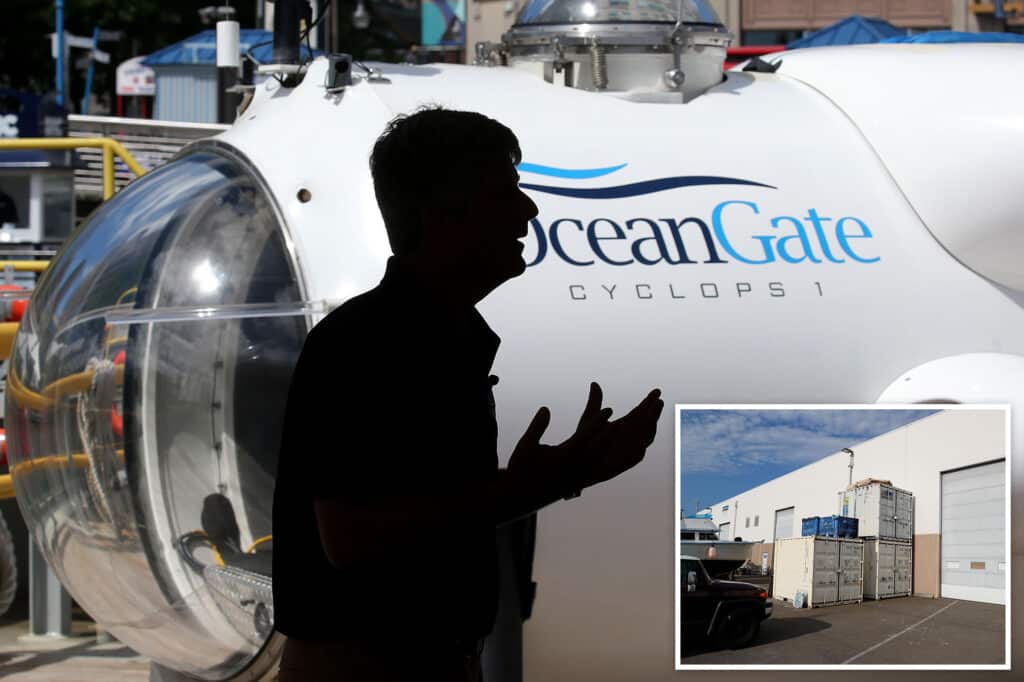Missing Submersible Titan Found in Pieces, All Aboard Dead

According to the U.S. Coast Guard, a tragic incident unfolded during a voyage to explore the century-old wreck of the Titanic. The submersible Titan, operated by OceanGate Expeditions carrying five individuals, suffered a devastating “catastrophic implosion,” resulting in the loss of all lives on board. The multinational search effort that lasted for five days came to a conclusion with this unfortunate discovery.
A remotely operated robotic diving vehicle deployed from a Canadian vessel made a significant find on Thursday morning. It located a field of debris belonging to the submersible named Titan. The debris field was located approximately 1,600 feet (488 meters) away from the Titanic’s bow, resting at a depth of 2 1/2 miles (4 km) below the surface. This somber event occurred in a remote region of the North Atlantic. U.S. Coast Guard Rear Admiral John Mauger conveyed this information to the press during a briefing.
Table of contents
The submersible Titan was being operated by OceanGate Expeditions
The submersible Titan, which was operated by the U.S.-based company OceanGate Expeditions, had been reported missing since it lost communication with its surface support ship on Sunday morning. The incident occurred approximately one hour and 45 minutes into what was supposed to be a two-hour dive to explore the renowned wreckage of the Titanic.
During the search, a debris field was discovered, containing significant remnants of the 22-foot (6.7-meter) Titan. Among the fragments identified were the vessel’s tail cone and two sections of the pressure hull, according to officials from the Coast Guard. However, there was no mention of any sighting of human remains within the debris field.
Rear Admiral Mauger stated that the observed debris field aligns with the aftermath of a catastrophic implosion of the submersible. The precise cause and details of the incident have yet to be determined or disclosed.
https://twitter.com/OceanGateExped/status/1671976846827876352?ref_src=twsrc%5Etfw%7Ctwcamp%5Etweetembed%7Ctwterm%5E1671976846827876352%7Ctwgr%5E5e146ab0cb3b08c44b137c33ee0db5f159f9ac3a%7Ctwcon%5Es1_&ref_url=https%3A%2F%2Fen.as.com%2Flatest_news%2Fwill-oceangate-face-criminal-charges-after-the-catastrophic-implosion-of-the-titan-submersible-n%2F
Prior to the Coast Guard’s press conference, OceanGate released a statement confirming the tragic outcome of the incident involving the submersible Titan. The statement revealed that there were no survivors among the five individuals on board, which included Stockton Rush, the founder, and CEO of OceanGate, who was operating the Titan.
The other four individuals who lost their lives in the accident were identified as follows: Hamish Harding, a British billionaire and explorer aged 58; Shahzada Dawood, a 48-year-old Pakistani-born businessman, and British citizen; his 19-year-old son Suleman Dawood, also a British citizen; and Paul-Henri Nargeolet, a 77-year-old French oceanographer and renowned expert on the Titanic. Nargeolet had previously visited the wreckage of the Titanic on numerous occasions, showcasing his adventurous spirit.
“These men were true explorers who shared a distinct spirit of adventure, and a deep passion for exploring and protecting the world’s oceans,” the company said. “Our hearts are with these five souls and every member of their families during this tragic time.”
Rescue efforts were in vain
During the search operation for the Titan, search teams and support personnel from the United States, Canada, France, and Britain collaborated extensively. Over the course of several days, they meticulously scanned vast expanses of open seas using planes and ships, hoping to locate any trace of the submersible.
The search efforts received significant attention from media outlets worldwide, capturing intense coverage. However, it is important to note that this attention overshadowed the aftermath of a significantly more devastating maritime tragedy. Last week, a migrant vessel incident off the coast of Greece resulted in the loss of hundreds of lives. Unfortunately, the media coverage of the search for the Titan took precedence, diverting attention from this larger humanitarian disaster.
Will OceanGate Expeditions face criminal charges?
The disappearance of the Titan and the subsequent inquiries into the incident has sparked discussions about potential criminal implications for OceanGate Expeditions, the company responsible for the submersible. Questions have arisen regarding the accountability of the company for the tragic loss of the crew members’ lives.
David Pogue, a former passenger on the submersible, shared insights suggesting that prior to the dive, passengers were required to sign a waiver. Pogue explained that the waiver explicitly outlined the various risks involved, including the potential for permanent disability, emotional trauma, or even death. He highlighted a specific statement in the waiver, mentioning that the ship had not received inspection or certification from any government agency.
However, legal experts, such as Neama Rahmani, a trial attorney, and former federal prosecutor, suggest that the presence of such a waiver may not provide absolute protection to OceanGate from potential criminal consequences arising from the crew members’ fatalities. While waivers can offer certain legal safeguards, they might not completely absolve a company from all forms of criminal liability.


